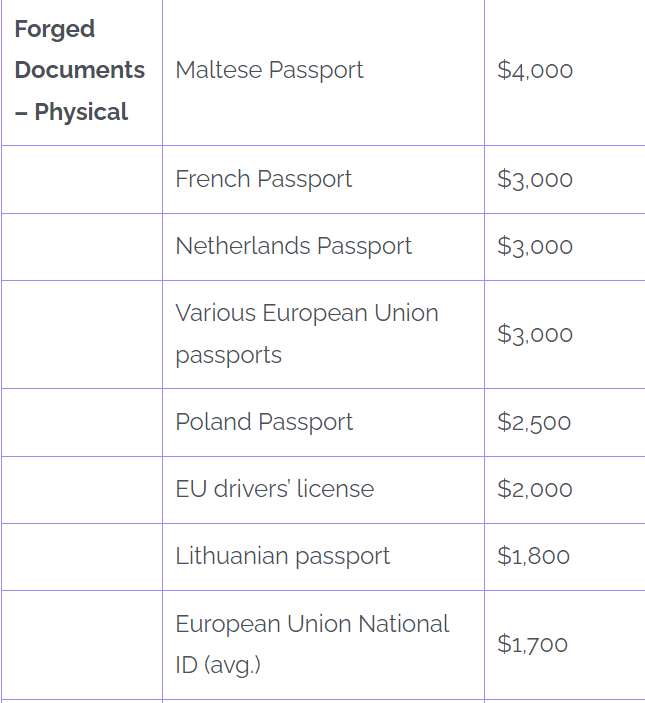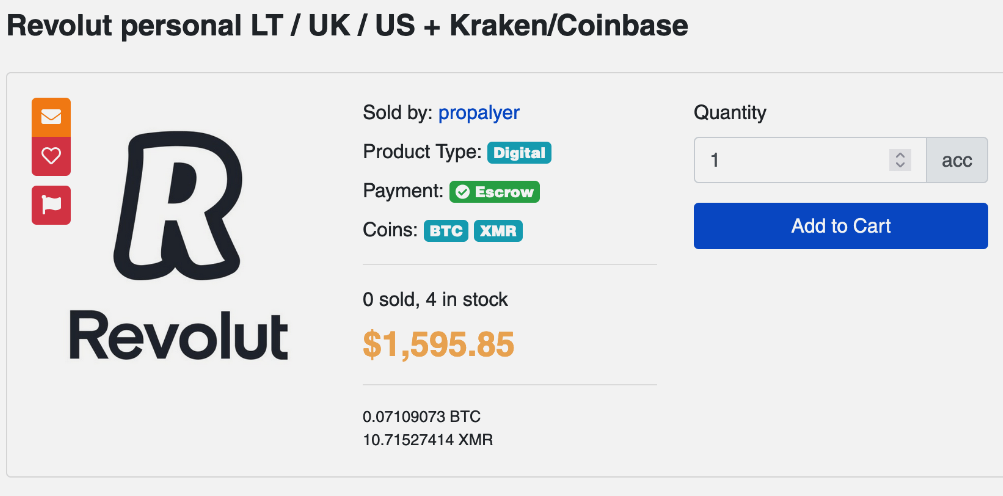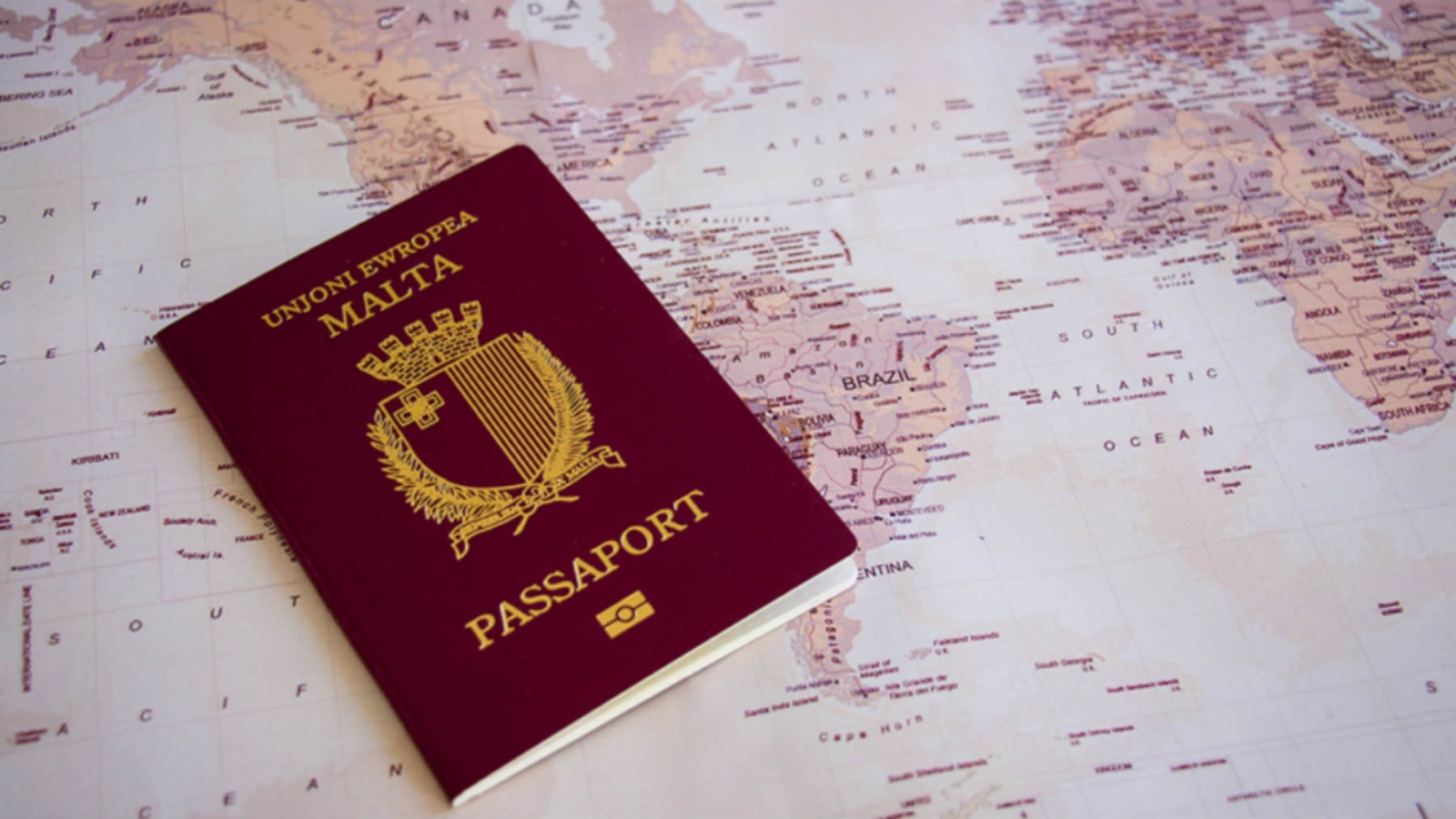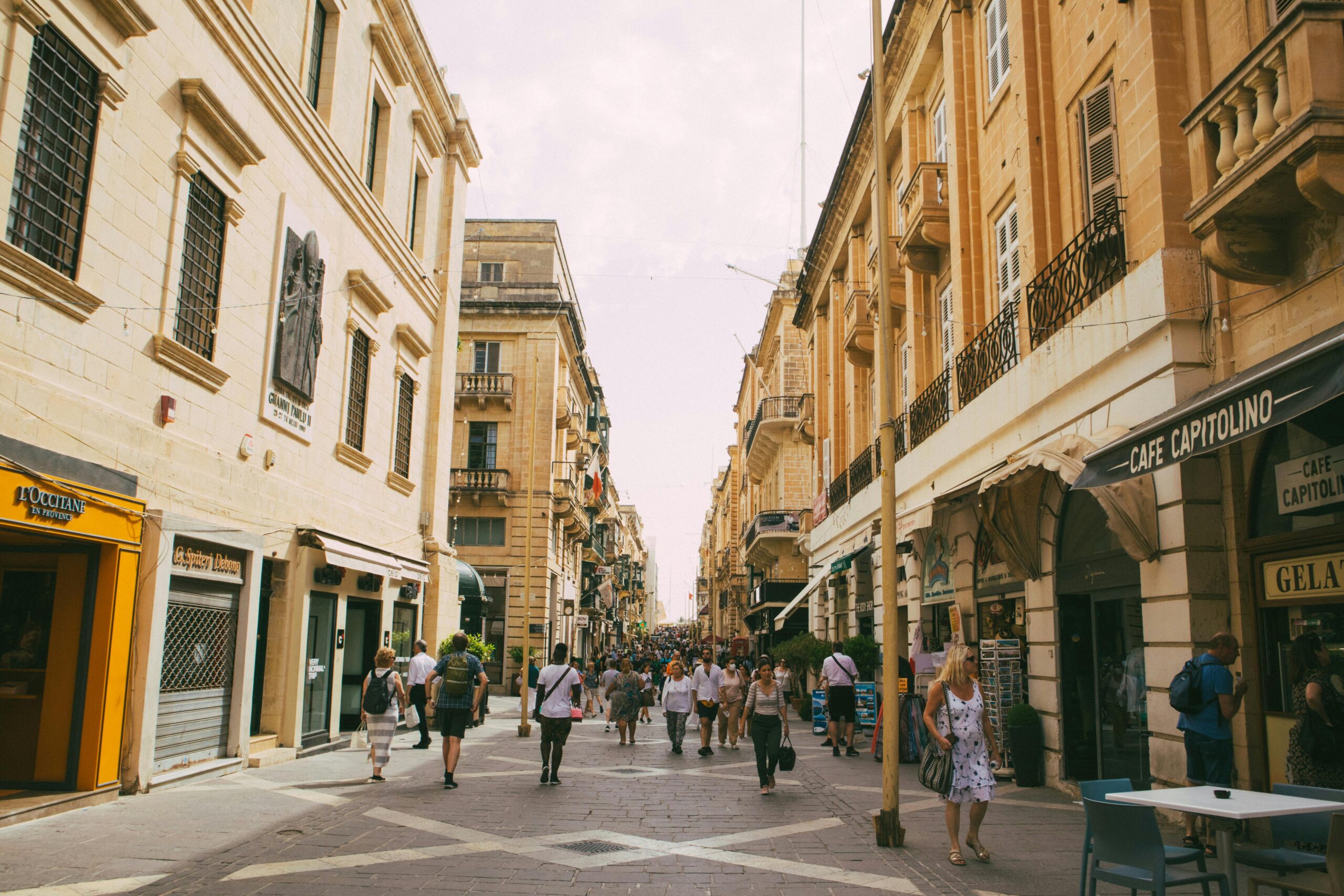The dark web is a hidden, anonymised corner of the internet which is a haven for illicit activities, services, and marketplaces, where users can buy forged documents, such as Maltese passports.
The Dark Web Price Index 2023 is an annual report published by Privacy Affairs, and provides insights into a list of goods and services sold by criminals on the dark web.
The products and services include stolen credit card details, bank logins, crypto exchange accounts, hacked social media and emails, forged documents, malware, and more. Transactions on dark web markets are generally carried out using cryptocurrencies such as Bitcoin or Monero.

Interestingly, the most expensive physical forged documents were Maltese passports, going for around $4,000 (€3,646) each. Year-on-year, the price of a Maltese passports increased by $200 (€182), whereas the price of most every other passport on dark web marketplaces fell, which made it more expensive than other more powerful passports.
The index also showed that a verified Revolut account registered in Lithuania, the UK or US was being sold for $1,200 (€1,095) and an HSBC UK business account was sold for $4,200 (€3,831).
Cloned or hacked credit cards could be bought for for as little as $10 (€9.12) on the dark web, and stolen online banking logins were available for $40 (€36.49) per account (with a minimum order of 100 accounts).
Users are even able to buy verified Airbnb accounts and hacked Uber driver accounts for $300 (€274) and $30 (€27) respectively.
Even though law enforcement agencies have cracked down on several dark web markets, new websites sprung up overnight.

The report highlighted, that despite seizures of many dark web markets by law enforcement agencies, there has been no indication that sales volumes have decreased.
Meanwhile, the prices of goods and services sold on these markets have reportedly decreased over the past three years, which the report alluded to law enforcement activities having little to no impact on supply, and due to more people falling victim to cybercrime.
In Malta, bank clients have been a common target for phishing scams. In 2023 alone, clients from three of the country’s major banks have been targeted by scammers pretending to be representatives of the banks, who tried to solicit sensitive information such as passwords or credit card details.
As of December 2022, the report noted that there was an estimate 7.5 million credit cards made available on the dark web.
The report cautioned, “unfortunately, the increasing availability of personal information on the dark web results in lower costs—and consequently, a higher likelihood—that your accounts will be compromised.”
“By adopting a few straightforward rules and habits, you can make it more difficult for hackers to access your data and remove yourself from their line of sight.”
Among a list of safeguards, it urged the public to refrain from using the same password across multiple accounts, to terminate accounts that are no longer used and to use password manager tools.
Malta International Airport closes in on one million passengers in June
Meanwhile, aircraft traffic movement rose by 4.5 per cent year on year
Malta’s population hits 574,250 in 2024, up by 1.9%
Total net migration was at 10,614 persons, the vast majority being non-EU citizens
Service excellence as a cornerstone of Avenue 77 workspace experience
Providing excellent service is a foundational aspect of what makes working at Avenue 77 a great experience






